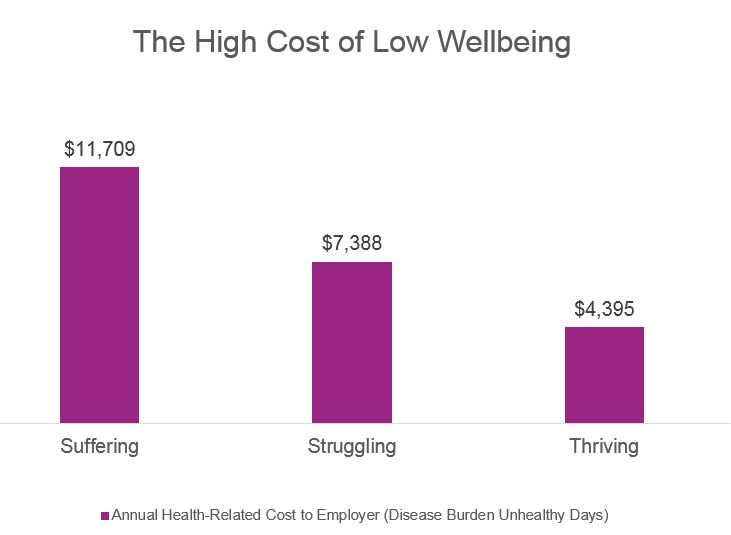Vacation. Few words elicit more longing or inspire more daydreams. Whether your ideal destination is a hammock on the beach or a cabin in the woods, we all have one thing in common: everyone needs to take a break from time to time.
That’s especially true for small business owners, who are more likely to struggle with work-life balance than workers in other roles. In fact, entrepreneurs overwhelmingly report that the running their business is more stressful than raising children.
So how do small business owners get their much deserved time off, and begin bringing their lives back into balance? A good place to start is with an appreciation of just how valuable vacation time can be – not just for you, but for the success of your business as well.
Healthy Boss, Healthy Business
While most business owners are concerned with their bottom line first and foremost, a business can’t be healthy unless its leadership is healthy as well.
The 1992 Framingham Heart Study, which still stands as the gold standard for long-term health studies, tracked workers over 20 years and discovered that men who don’t take vacations were 30% more likely to have heart attacks. For women, the number went up to 50%.
Those numbers held true even after researchers took into account other health factors like diabetes, cigarette smoking, income levels and obesity. The conclusions from the study have been backed up by other similar research studies.
Taking regular vacations from the office benefits more than just your physical health. It’s easy to lose focus when you’re consumed with the minutiae of keeping a business running. Small problems and everyday challenges can keep you from recognizing the progress you’ve made, or more importantly, recognizing opportunities when they arise. Taking a vacation gives you time to rest and recharge, and also to gain much-needed perspective – and inspiration. Even better? Taking regular vacations can actually improve your business’s productivity.
Setting a Good Example

When it comes to reducing healthcare costs, employee wellbeing has a direct impact on a company’s bottom line. Employees who are thriving in overall wellbeing have 41% lower health-related costs compared with employees who are struggling and 62% lower costs compared with employees who are suffering.
A shocking 40 percent of all Americans don’t take all of their vacation, leaving 430 million days of unused paid vacation a year, according to the U.S. Travel Association. In fact, the workers studied said they wouldn’t take time off, even though 90 percent rated their vacations as close to perfect, and the majority said vacations helped them relax and recharge, reduced their stress, enabled them to build closer relationships with family and made them happier.1
These missed vacation days aren’t saving businesses money; it’s costing them. Employees with high well-being have 41% lower health-related costs compared with employees who have lower well-being. Truly alarming, the healthcare costs of a 60-year-old with high well-being are lower than those for a 30-year-old with low well-being2, making it critical that employees take vacation breaks as well – and that business owners foster an environment where doing so is encouraged, in particular, by setting a good example themselves.
How to Make it Happen
If vacations are so valuable (and we enjoy them so much) why don’t we take them more often? Because though enjoying them is easy, planning them – and recovering from them – often isn’t.
Make it easier for yourself and get the break you deserve with these simple tips:
- Plan ahead and set your dates in stone. Knowing you’ve got time blocked off gives you something to look forward to, and makes it much more likely that you’ll actually take a break, rather than waiting for an opportunity to arise. If it helps, choose a time when business is slower, but keep in mind that breaks are necessary (and possible!) during periods of high stress, so don’t rule them out.
- Make a plan for your pre- and post- vacation days. Rather than trying to cram in extra tasks before you leave, set aside time to complete tasks. Create a checklist for tasks that must be completed before you depart, and then schedule some quiet time or meeting-free days for your return, to help make the re-entry to your work routine less stressful. You may also want to consider taking a day off (or a half day) before your trip actually starts, to tend to last minute packing and personal travel To Dos.
- While the temptation to answer emails and calls or take meetings remotely may be strong, a real break means disconnecting from work altogether. Make a list of what is or is not an emergency and leave it with your team. Delegate point people who can take responsibility for minor emergencies, requests or opportunities. Set your away message and let people know that you will not be answering calls or emails. Direct them to your point people instead.
Taking a break is not only good for you, and your employees, it is good for business. Get planning today, and gain perspective and productivity that can have benefits beyond good memories and a great tan.
Need help getting away? The Small Business Solutions blog regularly provides tips on how to better manage your business, enable remote work environments, go mobile, cut costs, and boost productivity. Subscribe today.
Share this on Twitter!
Tweet: Can taking a vacation really boost your productivity? It can. Here’s why taking a break is good for business: https://ctt.ec/Ra_af+ via @Xerox
Subscribe to the Small Business Solutions Blog and receive updates when we publish a new article. [wysija_form id=”1″]




[…] seems like only yesterday we were advising you to make the most of your summer vacation, and now the holiday season is here once again. Make the most of it with these tips for showcasing […]
[…] seems like only yesterday we were advising you to make the most of your summer vacation, and now the holiday season is here once again. Make the most of it with these tips for showcasing […]